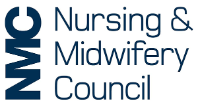BSc (Hons) - Nursing/Registered Nurse: Adult Nursing
On completion of the BSc Adult Nursing programme you will meet the requirements for entry onto the Nursing and Midwifery Council register and be awarded with a higher education degree from the University of Cumbria.
The programme is designed to prepare you to develop into a competent, safe and knowledgeable practitioner who is confident in delivering high quality, evidence-based and compassionate care and with the expertise you need to develop future nursing practice.
If you have already completed a FdSc Nursing Associate programme, you will have the opportunity to enter directly into the second year of this degree, enabling you to qualify as an adult nurse in just two years.
Course Overview
The programme is studied full time over three years and you will be expected to attend study and placements during the weeks specified on the programme planner. This will be made available to you on commencement of the course. For students who might wish to undertake placements closer to home, if you study at the Lancaster campus you may have the opportunity to undertake placements with the Lancashire Teaching Hospitals, Blackpool Teaching Hospitals, Lancashire and South Cumbria Foundation Trust, and University Hospitals of Morecambe Bay.
Equal value is placed on theory and practice for the duration of the BSc Nursing programme and you will develop confidence and competence in the achievement of the NMC proficiencies through your engagement with practice-related experiences.
Throughout the length of the course you will be introduced to essential knowledge that a nurse is required to understand to enable the delivery of effective person-centred care. This will include an introduction to, and development of, knowledge of biological sciences, pathophysiology, pharmacology, medicine management, communication, professional, ethical and legal requirements, health promotion, knowledge of evidence-led practice, along with an advancing range of clinical skills that will be developed whilst on placement and in the university setting.
Emphasis is placed on your ability to research and study independently and work with your student colleagues. The programme aims to develop your skills of self-reflection and ability to reason and develop your critical thinking skills.
The University of Cumbria has excellent clinical skills and simulation facilities including simulated ward areas, high dependency care areas, home spaces and a brand new dedicated ‘immersive simulation room’. These spaces are used throughout the duration of the course and enable you to experience ‘real-life’ scenarios in a simulated environment.
On this course you will...
- Develop and accomplish the knowledge and skills you need to practise and provide evidenced-based and compassionate care as a registered nurse.
- Develop skills of assessment, clinical decision making and managing complex care in a variety of settings.
- Learn and work alongside all fields of nursing and the multi-disciplinary team whilst on placement, and recognise the contribution of different health professionals' roles and expertise.
- Develop skills through a range of nursing placements that will be a mixture of hospital and community settings, and through skills teaching and simulated practice.
- Prepare you for a future leadership role in nursing practice.
What our students and graduates say
-
![Oliver Reynolds, Nursing Student]()
I chose Adult Nursing due to the ability to make a difference in someone's life when they are in need of it most, that thoroughly excites me. Being able to care and constantly learn about patients and their conditions is a big part.
Oliver Reynolds, Nursing Student
Originally from Morecambe and studying at Cumbria's Lancaster campus, Oliver joined the front lines at Lancaster Royal Infirmary during the coronavirus pandemic as part of his second-year placement.
-
![Joshua Gilroy, Nursing Graduate]()
After seeing the mixed quality of care his grandfather received Josh wanted to become a nurse to deliver quality care to others. Josh is now graduating and has got a newly registered job, ready for him upon graduation in Durham as a Community Staff Nurse.
Joshua Gilroy, Nursing Graduate
Graduating in 2022, Josh was inspired to go into nursing to make a difference.
-
![Cherish Otoo, Nursing Graduate]()
Cherish was described by judges as “an exceptional and inspirational nurse trailblazer” who “emanates a modern-day Mary Seacole in every sense of the word”. Cherish has now graduated and secured a nursing role at the Royal Lancaster Infirmary Emergency Department.
Cherish Otoo, Nursing Graduate
Cherish won ‘Most Inspirational Student of the Year’ and the ‘Mary Seacole Award for Outstanding Contribution to Diversity and Inclusion’ at the 2022 Student Nursing Times Awards.
Location
Carlisle - Fusehill Street Campus
The Fusehill Street campus has been the setting of life-saving treatments since World War I. Now, it's home to world changers, life-savers, crime fighters, and entrepreneurs with access to high-quality facilities and innovative thinking.
Find out moreLocation
Lancaster Campus
Lancaster is the Red Rose heartland, a student haven full of history and culture. With iconic stone architecture, parkland, and a caring community, this is the place to get involved. The campus houses top-quality facilities tailored to the needs of life-savers, world changers, and future leaders.
Find out moreLocation
Barrow-in-Furness Campus
Set in the heart of Barrow-in-Furness, the Barrow Campus offers higher education courses in a convenient location. With state-of-the-art facilities and placement opportunities, this is the place where students become life-savers.
Find out more
Find out more about studying with us
Attend an Open Day at Cumbria
An Open Day is your opportunity to explore one of 5 campuses, meet your lecturers, and find out how the University of Cumbria could become your new home.



-Thumbnail.webp)





-200x200.png)


.webp)



